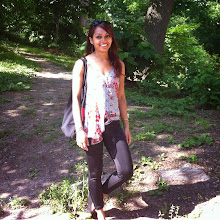Before continuing, take a few moments to read the “Open Letter from Bangladeshi families of Vancouver and University of British Columbia about Rumana Manzur” here
Violence against women and domestic violence is not an issue specific to Bangladesh. Granted, it exists there. After a conversation with a social/community worker who works specifically with the Bangladeshi community in Montreal I’ve learned that domestic violence is in fact becoming a growing problem, not only back home, but within the migrated community living in Canada.
An interesting tidbit she shared with me – there is a misconception within South Asian circles that abuse co-exists with poverty and a lack of education. Her experience tells her otherwise. Abuse has become more and more visible amongst educated couples. Note that this is not a simple equation; one can deduce a number of conclusions. Perhaps the higher level of education relates to a higher likelihood to report abuse/seek help. Obviously this is not empirical evidence, nor is it coming from my own personal experience. So take it as it is – a community worker’s decade (+) of experience in a very specific region working with a very specific community. Experiences and deductions not to be generalized willy-nilly-ily, nor discounted of course! Because let’s face it – violence against women/domestic violence/spousal abuse exists laterally, cutting across ethnicities, religious affiliations, race, creed, socio-economic status and level of education.
All that to say, it begs the question, “how do you address the issue without perpetuating negative stereotypes of [a] South Asian community?” This is something I’ve struggled with recently, as a community worker delving into issues such as harassment of women [in public space] in particularly ghetto-isez areas of Montreal with a visible South Asian population. Toronto had a publicized conference addressing the “Impact of Family Violence: A South Asian Perspective”. I wonder what the response was to that...
So back to the original purpose of the post: the letter written in solidarity by “Bangladeshi families of Vancouver and the University of British Columbia”. I found it interesting that throughout the letter, the actions committed by her husband were not deplored based on the fact that they were violent and abusive. They were instead condemned, as was the perpetrator based on the [counter-] argument that Rumana did not in fact have an extramarital affair. She was portrayed as an abiding Muslim woman, dedicated to her husband and child.
What does this say about how this group of people feel about domestic violence? Would they have considered aggression that culminated in the gouging out of her eyes warranted had Rumana actually been with another man while away from her husband? Would the community have shown her the same support and concern in that case? Who would stand with her, in solidarity, not only against the violence perpetuated against her – but violence perpetuated against women in general?
Thursday, July 14, 2011
Subscribe to:
Comments (Atom)
